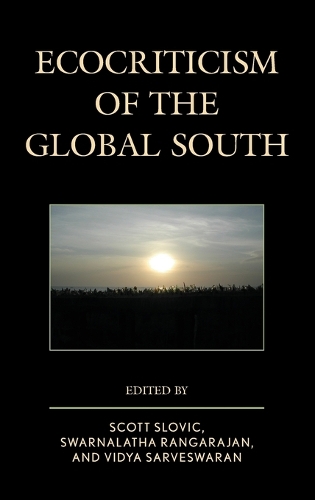
Ecocriticism of the Global South
(Hardback)
Available Formats
Publishing Details
Ecocriticism of the Global South
By (Author) Scott Slovic
Edited by Swarnalatha Rangarajan
Edited by Vidya Sarveswaran
Contributions by Benay Blend
Contributions by Charles Dawson
Contributions by Sharae Deckard
Contributions by Christopher Lloyd de Shield
Contributions by Dina El Dessouky
Contributions by Ein Flannery
Contributions by Adrian Taylor Kane
Bloomsbury Publishing PLC
Lexington Books
24th March 2015
United States
Classifications
Professional and Scholarly
Non Fiction
Philosophy: aesthetics
333.72
Physical Properties
Hardback
282
Width 160mm, Height 236mm, Spine 24mm
535g
Description
The vast majority of existing ecocritical studies, even those which espouse the postcolonial ecocritical perspective, operate within a first-world sensibility, speaking on behalf of subalternized human communities and degraded landscapes without actually eliciting the voices of the impacted communities. Ecocriticism of the Global South seeks to allow scholars from (or intimately familiar with) underrepresented regions to write back to the worlds centers of political and military and economic power, expressing views of the intersections of nature and culture from the perspective of developing countries. This approach highlights what activist and writer Vandana Shiva has described as the relationship between ecology and the politics of survival, showing both commonalities and local idiosyncrasies by juxtaposing such countries as China and Northern Ireland, New Zealand and Cameroon. Much like Ecoambiguity, Community, and Development, this new book is devoted to representing diverse and innovative ecocritical voices from throughout the world, particularly from developing nations. The two volumes complement each other by pointing out the need for further cultivation of the environmental humanities in regions of the world that are, essentially, the front line of the human struggle to invent sustainable and just civilizations on an imperiled planet.
Reviews
Ecocriticism of the Global South is a rare and much needed achievement in ecocriticism. It speaks from geographical and political contextsgiving it unprecedented planetary reach. In this process, it both extends and transforms the significance of the ecocritical project as a world phenomenon. -- George B. Handley, Brigham Young University
Author Bio
Vidya Sarveswaran is assistant professor of English in the Department of Humanities and Social Sciences at the Indian Institute of Technology Jodhpur. Scott Slovic edits the journal ISLE: Interdisciplinary Studies in Literature and Environment, and is professor and chair of the English Department at the University of Idaho. Swarnalatha Rangarajan is associate professor of English at the Department of Humanities and Social Sciences at the Indian Institute of Technology Madras.
